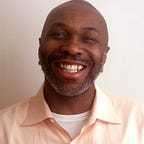Du Bois Was a Marxist. Aye. So?
In recent months, a few people I know have brought up the fact that at least since the mid-1930s, the great W. E. B. Du Bois had professed himself a Marxist. The poet E. Ethelbert Miller, one of my co-panelists at a talk a couple of months back, made a point of interrogating notions of Blackness with the idea that Black activists were/are afraid to identity Du Bois as a Marxist. Certainly by the time Du Bois broke free from the federal government’s McCarthy-era ban on his international travel in 1958, he was. Du Bois re-obtained his passport, traveled the world, and ended up in Ghana in 1961. There, at the age of 93, he renounced his US citizenship and declared himself a Communist. Two years later, on the eve of the March of Washington, Du Bois died. The end.
All the above is true, but not so fast! The thing I’ve known in all my years of reading Du Bois’ work, writing about Du Bois, and in reading others who’ve written about Du Bois, was that Du Bois wasn’t just one thing. Nearly every social science and humanities tradition in the US can claim influence from Du Bois’ work. Poetry, theology, philosophy, psychology, economics, and American literature would be one set of his influences, and that’s just with The Souls of Black Folk!
Though Du Bois’ Harvard doctorate was in history, he’s widely recognized as one of the founders (if not the actual founder) of American…
